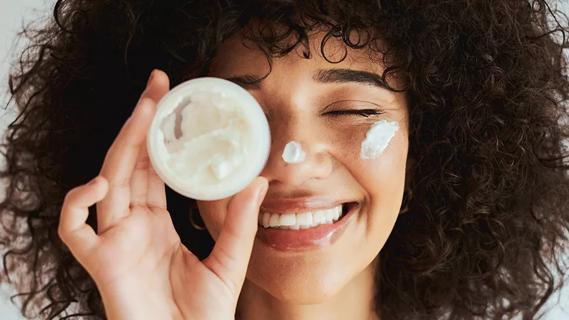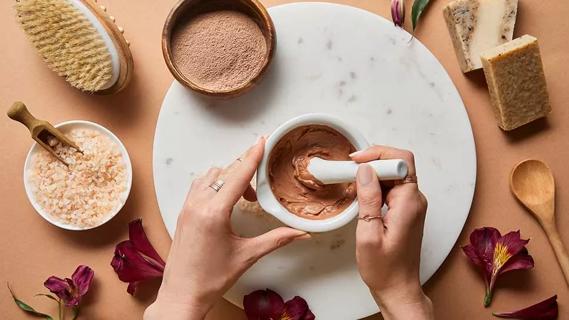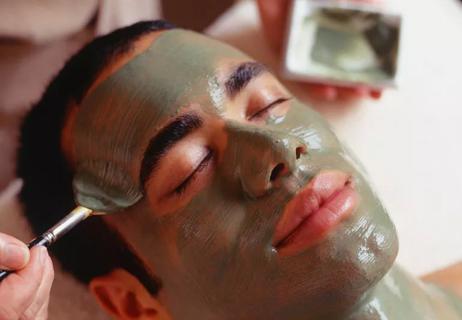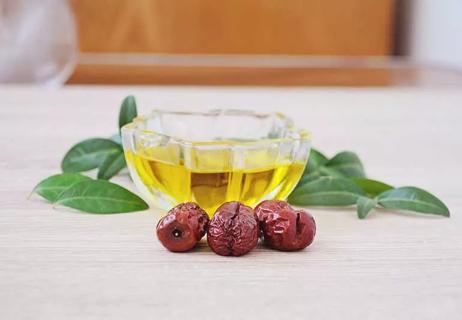The secret to firmer, younger-looking skin starts with a healthy diet

You can’t stop the aging process, but you can control how you do it. The good news is that if you’re committed to eating healthier, you can help give your skin a boost. Registered dietitian, Nicole Hopsecger, RD, discusses how certain nutrients and eating habits can contribute to glowing, healthy skin.
Advertisement
Cleveland Clinic is a non-profit academic medical center. Advertising on our site helps support our mission. We do not endorse non-Cleveland Clinic products or services. Policy
As we age, it’s normal to see changes in our skin, but why? Hopsecger offers a few reasons.
Oxidative stress: Oxidative stress has a role in skin aging; it’s a process that happens when free radicals cause damage to your cells. Free radicals are natural products of human metabolism, sun exposure and lifestyle factors like a highly processed diet, alcohol intake and smoking.
Inflammation: Increased inflammation in your body can have a negative impact on your skin. A diet filled with processed foods may increase total body inflammation.
Dryness: Skin dryness happens when your cells are poorly hydrated. This causes skin cells to get smaller. Dry weather, certain soaps and excessive sun exposure can also cause dryness.
Hopsecger strongly suggests visiting a dermatologist first to talk about any skin concerns you may have. But she says that there are other things you can do to help your complexion.
“Wear sunscreen, reduce alcohol, quit smoking and stay hydrated,” advises Hopsecger. Drinking less alcohol leads to fewer free radicals being produced and less cell damage. If your skin is dehydrated, she says that drinking eight glasses of water daily can help.
Hopsecger also says that a diet full of fried foods, fast foods and sugar can impact your skin’s health in a negative way.
Advertisement
“Eating too many processed or refined sugars and foods with a high glycemic index (dairy, carbohydrates, and unhealthy fats) can actually cause skin inflammation, irritation and breakouts, and possibly promote aging,” she says. So, eat these foods in moderation and remember: supplements aren’t a substitute for a healthy diet.
By eating more fruit, vegetables, whole grains, nuts, fatty fish and legumes, you can help nourish your skin from the inside out.
Essential fatty acids such as omega-3s help your cells stay hydrated. In addition, omega-3s can help reduce inflammation in your body. Antioxidants and phytonutrients can help protect your cells by reducing free radicals in your body. So, which foods are good sources of omega-3s, antioxidants and phytonutrients? Here are Hopsecger’s picks.
Omega-3 fatty acids improve cholesterol and battle inflammation. They also help preserve collagen in your skin and keep it firmer.
“The top source of omega-3s is fish,” says Hopsecger. These are the best candidates for the job:
If you don’t eat fish, here are some plant-based options for an omega-3 boost:
Tomatoes contain lycopene, an antioxidant that can help keep your skin smoother. Plus, they’re easy to work into anything — like salads, side dishes, sandwiches and sauces.
Some fruits and vegetables not only contain antioxidants, but also contain healthy amounts of vitamin C. Vitamin C can help fight wrinkles. Some of the best foods for skin that are packed with vitamin C include:
Vitamin E is an antioxidant that can help prevent cell damage. Some of the best foods for your skin that contain vitamin E include:
Not familiar with polyphenols? They’re powerful antioxidants that can be found in a variety of foods. Some of the highest sources of polyphenols include:
Advertisement
“Overall, the best way to nurture your skin is by eating a diet filled with plant-based foods and reducing the amount of processed foods and alcohol. If you eat these recommended foods regularly, you may feel better — and your skin will reflect that as well,” says Hopsecger.
Advertisement
Learn more about our editorial process.
Advertisement

Pantothenol is a powerful moisturizer and can help repair damaged skin and hair

This alternative to retinol may be easier on sensitive skin

Day creams should protect your skin, night creams should soothe and repair it

Pure cocoa butter can help keep your skin supple, with a subtly delicious scent

Focus on the philosophy — replenishing and respecting your skin — not necessarily the steps

Lie back and relax as a skin specialist cleanses, exfoliates and hydrates your skin

The powerhouse oil fights fine lines and wrinkles, soothes sunburn and a whole lot more

From icing to taping, experts chime in on what’s worth trying and what’s better off skipping

Type 2 diabetes isn’t inevitable with these dietary changes

Applying a hot or cold compress can help with pain